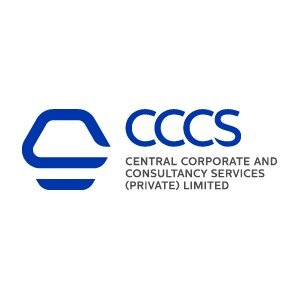Best Renewable & Alternative Energy Lawyers in Sri Lanka
Share your needs with us, get contacted by law firms.
Free. Takes 2 min.
Or refine your search by selecting a city:
List of the best lawyers in Sri Lanka
About Renewable & Alternative Energy Law in Sri Lanka
Sri Lanka has made significant strides in adopting renewable and alternative energy sources as part of its national policy to achieve sustainable development and energy security. The government encourages the use of solar, wind, small hydro, and biomass energy to reduce dependence on fossil fuels and to meet growing electricity demand. Renewable & alternative energy law in Sri Lanka encompasses the regulations, policies, and legal frameworks that guide the generation, distribution, and consumption of energy from these sustainable sources.
The country’s legal approach to renewable energy is shaped by environmental considerations, international commitments, and the need to attract investment. Key initiatives include support for private sector participation, standardized power purchase agreements (SPPAs), tariff mechanisms, and streamlined approval processes. These laws ensure that projects are environmentally sustainable, economically viable, and aligned with Sri Lanka’s energy goals.
Why You May Need a Lawyer
Legal advice is often crucial in the renewable and alternative energy sector due to the complex nature of regulations, contractual arrangements, and government procedures. A lawyer can help navigate challenges such as:
- Securing licenses and permits for establishing renewable energy projects
- Negotiating and drafting power purchase agreements or joint venture contracts
- Ensuring compliance with environmental and zoning regulations
- Dealing with land acquisition and property rights issues
- Understanding incentives, subsidies, and tax benefits for renewable energy investments
- Resolving disputes relating to project development, construction, or operation
- Advising on matters related to foreign investment and repatriation of profits
Whether you are an individual investor, company, or developer, legal guidance helps avoid costly mistakes and ensures your project aligns with the latest laws and policies in Sri Lanka.
Local Laws Overview
Sri Lanka’s legal regime for renewable and alternative energy is governed by several key pieces of legislation and policy documents:
- Electricity Act, No. 20 of 2009 - Regulates the generation, transmission, and distribution of electricity, including from renewable sources. It empowers the Public Utilities Commission of Sri Lanka (PUCSL) to oversee market operations.
- Sri Lanka Sustainable Energy Authority Act, No. 35 of 2007 - Establishes the Sri Lanka Sustainable Energy Authority (SLSEA) and outlines its mandate to promote, develop, and regulate sustainable energy projects.
- National Energy Policy and Strategies - Provides a national roadmap for increasing renewable energy capacity and sets targets for future investment and development.
- Environmental Regulations - Environmental Impact Assessments (EIAs) are mandatory for large-scale projects, ensuring they do not harm the environment or local communities.
- Land Laws - Specific rules govern the use, leasing, and transfer of state or private land for renewable energy development.
Additional regulatory requirements may apply for grid connection, safety standards, and health regulations. These laws are subject to frequent updates to align with international trends and commitments, so staying informed is essential.
Frequently Asked Questions
What types of renewable energy are most commonly used in Sri Lanka?
Sri Lanka primarily utilizes hydropower, solar power, wind energy, and biomass for its renewable energy needs. Hydropower has the largest share, but solar and wind projects are increasing rapidly.
Do I need special permits to set up a renewable energy project?
Yes, you generally need several permits, including a generation license, environmental clearance, and local government approvals. The Sri Lanka Sustainable Energy Authority plays a key role in granting these approvals.
Are there incentives for investing in renewable energy in Sri Lanka?
Yes, the government offers incentives such as tax holidays, duty exemptions on renewable energy equipment, and guaranteed power purchase agreements with state utilities to encourage investments.
How are power purchase agreements structured?
Power purchase agreements (PPAs) are legal contracts between the power producer and the Ceylon Electricity Board (CEB). They specify tariffs, duration, payment terms, and technical requirements.
Is foreign investment allowed in renewable energy projects?
Yes, foreign investors can participate in renewable energy ventures, subject to regulations on foreign ownership and sector policies. Legal assistance is recommended to navigate investment rules.
What environmental requirements must be met?
Large-scale projects often require Environmental Impact Assessments to ensure minimal adverse effects on ecosystems and communities. Compliance with environmental laws is mandatory before beginning construction.
Can disputes be resolved through arbitration?
Yes, many contracts in the energy sector include arbitration clauses for resolving disputes outside of court. Sri Lanka recognizes both domestic and international arbitration processes.
Are there restrictions on land use for renewable energy projects?
Land use regulations depend on the location and type of project. Securing land rights and obtaining necessary permits from relevant authorities is essential before development.
How can I sell surplus energy produced from my project?
Independent power producers can sell surplus electricity to the national grid under specific agreements regulated by the PUCSL and CEB, often at a pre-determined tariff rate.
What role do government agencies play in renewable energy?
Government agencies such as the SLSEA, PUCSL, and CEB regulate, facilitate, and monitor renewable energy projects throughout their lifecycle to ensure compliance, safety, and sustainability.
Additional Resources
For further information and assistance, the following organizations can provide guidance or support:
- Sri Lanka Sustainable Energy Authority (SLSEA) - Primary agency for promoting and regulating sustainable energy.
- Public Utilities Commission of Sri Lanka (PUCSL) - Regulator for electricity industry standards, licenses, and consumer protection.
- Ceylon Electricity Board (CEB) - Main utility company responsible for power generation and distribution.
- Board of Investment of Sri Lanka (BOI) - Facilitates investment in renewable energy and provides incentives to foreign and local investors.
- Ministry of Power and Energy - Develops and implements energy policy and oversees sectoral governance.
Next Steps
If you are planning to invest in, develop, or operate a renewable or alternative energy project in Sri Lanka, it is important to be proactive. Here is how you can proceed:
- Gather initial information about your project requirements and objectives.
- Consult with a lawyer who specializes in renewable and alternative energy law in Sri Lanka to assess your legal needs and obligations.
- Prepare necessary documentation for permits, licenses, and environmental assessments.
- Engage with relevant government agencies early in the process to understand current regulations and incentives.
- Review and negotiate contracts such as PPAs, land leases, and joint venture agreements with legal oversight to protect your interests.
- Stay informed about policy changes or updates in energy law that could affect your project.
Having professional legal support will help you navigate regulatory complexities, minimize risks, and set your project up for long-term success in Sri Lanka’s growing renewable energy sector.
Lawzana helps you find the best lawyers and law firms in Sri Lanka through a curated and pre-screened list of qualified legal professionals. Our platform offers rankings and detailed profiles of attorneys and law firms, allowing you to compare based on practice areas, including Renewable & Alternative Energy, experience, and client feedback.
Each profile includes a description of the firm's areas of practice, client reviews, team members and partners, year of establishment, spoken languages, office locations, contact information, social media presence, and any published articles or resources. Most firms on our platform speak English and are experienced in both local and international legal matters.
Get a quote from top-rated law firms in Sri Lanka — quickly, securely, and without unnecessary hassle.
Disclaimer:
The information provided on this page is for general informational purposes only and does not constitute legal advice. While we strive to ensure the accuracy and relevance of the content, legal information may change over time, and interpretations of the law can vary. You should always consult with a qualified legal professional for advice specific to your situation.
We disclaim all liability for actions taken or not taken based on the content of this page. If you believe any information is incorrect or outdated, please contact us, and we will review and update it where appropriate.
Browse renewable & alternative energy law firms by city in Sri Lanka
Refine your search by selecting a city.

















